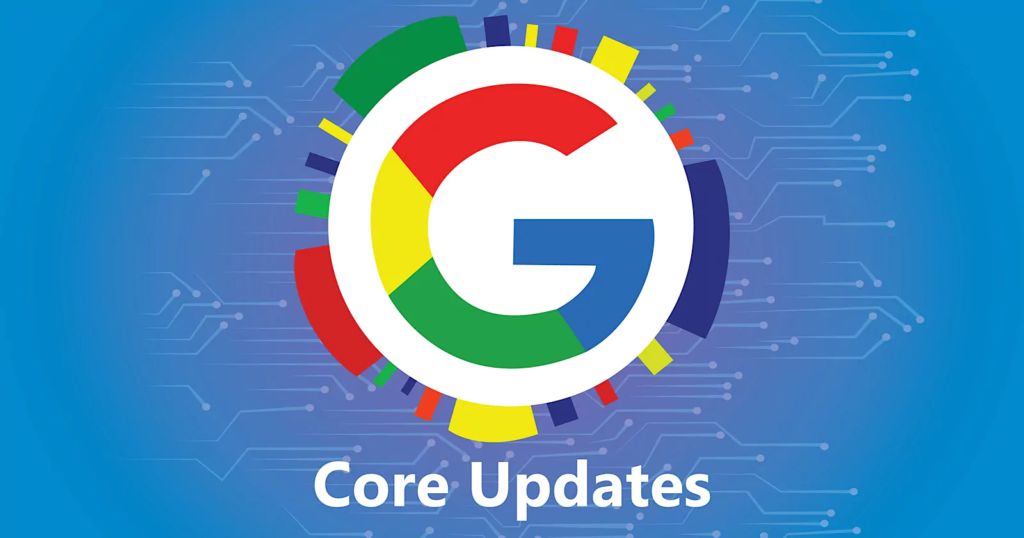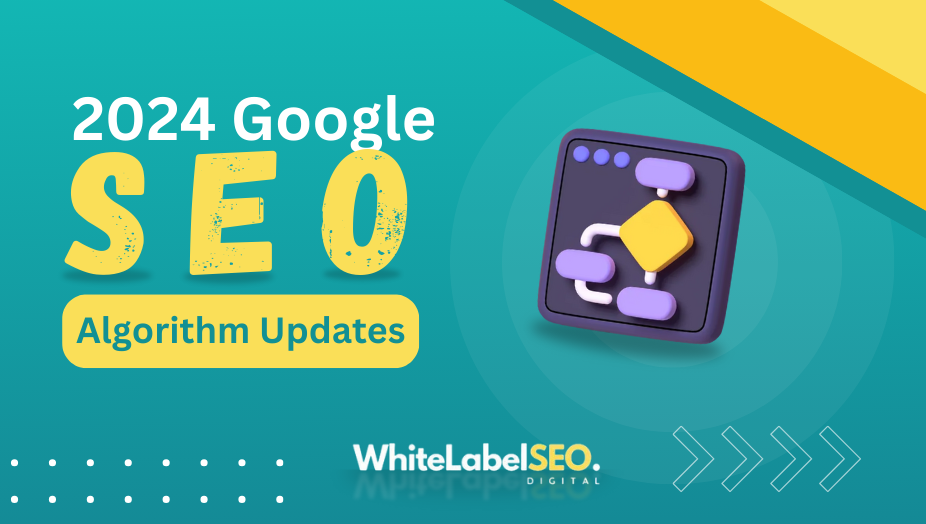What is a Google Algorithm Update?
Most of the businesses are on Google these days. When users search for a specific query on Google, Google uses a set of complex algorithms to retrieve data from its indexed pages and give results for a search query.
A Google Algorithm sifts through billions of pieces of content in Google’s index, looking for phrases and keywords that match the query. But the google search algorithm is not very simple. It uses hundreds of criteria to evaluate a search query and display results on its SERP pages.
However, with the advent of AI and other mechanisms there were a lot of unhelpful content on SERPs. Hence, Google rolled out significant algorithms to maintain the relevancy and freshness of data shown in search ranking pages. Thus, a Google algorithm update is a change made to Google’s search engine in order to improve the quality, relevance, and overall user experience of its search results.
We will now understand the types of Google algorithm updates and the recent Google seo algorithm update 2024.
How Often Does Google Algorithm Change
Google updates its algorithm quite often. Sometimes thousands of times per year. But most of these changes go unnoticed. Typically, when a significant change is made, Google makes a public announcement well ahead of time.
Types of Google Algorithm Updates
Google announces different types of algorithm updates when the changes are wide-ranged. One of these is core updates. A core algorithm update is one that is so significant to the algorithm, that Google is compelled to publicly announce the pending changes, usually well ahead of time to give webmasters sufficient time and opportunity to adjust. The June 2021 “Page Experience” update is an example of a “core” algorithm update.
While Google has long released broad core algorithm updates, Danny Sullivan, Google’s search liaison, began announcing core updates officially, in March 2018. These tremendously impacted how search marketers think about content.
Google SEO Algorithm Update 2024
There were a number of Google algorithm updates in 2024, we will discuss them one by one.
Google March 2024 Core Update

Google’s March 2024 core update is now done rolling out, it started on March 5, 2024 and completed 45 days later on April 19, 2024. This was a big core update, where Google said that this core update was more complex and involved changes to multiple core systems
As per a Google spokesperson, the update led to 45% less low quality, unoriginal content in search results
Google said this update has refined how it understands which webpages are “unhelpful, have a poor user experience or feel like they were created for search engines instead of people.” This “could include sites created primarily to match very specific search queries.
With the March 2024 core update, Google will also stop announcing new helpful content updates, since the helpful content system has been incorporated into the core update system.
With the March 2024 core update, Google wanted to highlight high-quality content. Of course, the update doesn’t penalize the use of AI in content creation. However, it aimed to ensure that content meets the same standards as real authors. This means AI-generated content should be informative, accurate, and engaging. Also, it should offer unique perspectives or insights that benefit the user.
Hit By the March 2024 Google Core Update?

Google’s March 2024 Core Update has sent shockwaves through the world of search engine optimization (SEO), leaving many website owners grappling with sudden changes in traffic and rankings. As with previous updates, the March 2024 release aims to improve the quality and relevance of search results for users. While the specific algorithmic changes are not always disclosed, historical patterns and trends suggest that content quality, user experience, expertise, and backlink profiles are likely to be key focus areas.
For website owners impacted by the update, the first step is to remain calm and avoid panic-driven decisions. Monitoring traffic and rankings using analytics tools and Google Search Console is crucial to identify the extent and nature of the changes. By differentiating between organic search, referral, and direct traffic fluctuations, it becomes possible to isolate the impact of the update from other potential factors like seasonal trends or website modifications.
Investigating the impact of the update involves aligning observed traffic and ranking shifts with the official rollout dates provided by Google. Dive deep into the data, particularly the Performance report in Google Search Console, to pinpoint affected pages, queries, and content. Assess whether the issues stem from content quality and relevance problems, technical SEO shortcomings, or a combination of both.
Recovering from the update requires a strategic approach tailored to the specific issues identified. For content-related problems, compare underperforming pages against those now ranking well to identify areas for improvement in relevance, depth, and value. Google’s helpful content questions serve as a valuable framework for evaluating the originality, comprehensiveness, expertise, purpose, educational value, trustworthiness, professionalism, and user-centricity of your content.
While sudden traffic losses from core updates are more commonly content-related, addressing any severe technical issues is also essential.
Google’s March 2024 Spam Update

In its ongoing efforts to maintain a clean and trustworthy search experience, Google has recently completed the March 2024 Spam Update. This update, which took 14 days to roll out, specifically targeted three malicious practices that have become increasingly prevalent across the web: expired domain abuse, scaled content abuse, and site reputation abuse.
Expired Domain Abuse
Expired domain abuse occurs when an individual or organisation uses an expired domain to exploit the previous owner’s search visibility and post low-value content. By leveraging the domain’s existing authority and rankings, these bad actors attempt to manipulate search results and drive traffic to their own low-quality or spammy pages. Google’s update aims to identify and penalise such practices, ensuring that expired domains are not used to deceive users and undermine the integrity of search results.
Scaled Content Abuse
Scaled content abuse, another focus of the March 2024 update, involves the generation of numerous pages of low-value content to manipulate search rankings. In this update, Google expanded its policy to include auto-generated content, allowing the search engine to take action against scaled content abuse regardless of whether it’s created through automation, human effort, or a combination of the two. This move demonstrates Google’s commitment to rewarding high-quality, original content while discouraging the proliferation of low-value, spammy pages.
Site Reputation Abuse
The third malicious practice addressed in the update is site reputation abuse. This occurs when a site publishes third-party pages with little oversight from a first party to manipulate search rankings. Often, these pages are filled with advertising content that serves no value to readers.
To combat this issue, Google’s new policy distinguishes acceptable third-party content, such as native advertising that doesn’t intend to manipulate rankings and serves regular readers, from abusive practices. By cracking down on site reputation abuse, Google aims to promote transparency and ensure that users are not misled by deceptive advertising practices.
The March 2024 Spam Update is part of Google’s ongoing efforts to refine its existing regulations around spam content. Much like the frequent core updates that prioritise helpful content, Google will periodically tweak its spam policies to address emerging threats and maintain a high-quality search experience for users.
For website owners and content creators, the March 2024 Spam Update and the March 2024 core update serves as a reminder of the importance of adhering to Google’s guidelines and best practices. By focusing on creating original, high-quality content that provides value to readers, and avoiding manipulative tactics like expired domain abuse, scaled content abuse, and site reputation abuse, websites can maintain their visibility and credibility in search results.
As the web continues to evolve, Google’s commitment to combating spam and promoting trustworthy content remains steadfast. The March 2024 Spam Update is just one example of the search engine’s ongoing efforts to adapt to new challenges and ensure that users can access the information they need without falling victim to malicious practices. By staying informed about these updates and prioritising ethical, user-centric content strategies, website owners can navigate the ever-changing landscape of search and build a strong, sustainable online presence.
Related:
What is Reputation Management in SEO?
How SEO Reseller Helps Companies with Technical SEO Services
